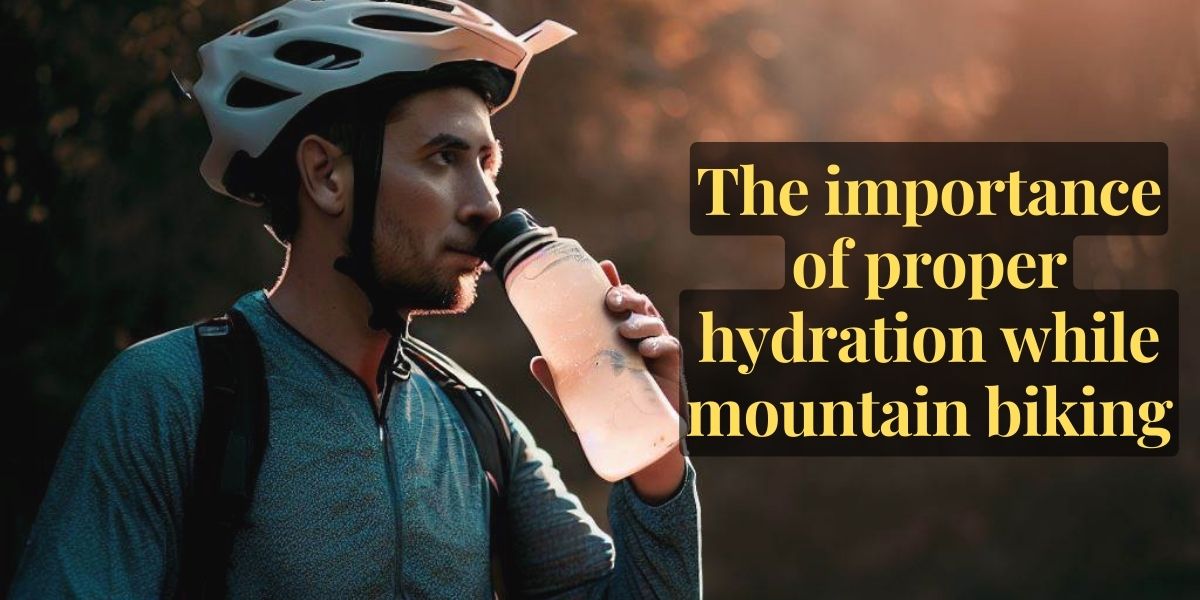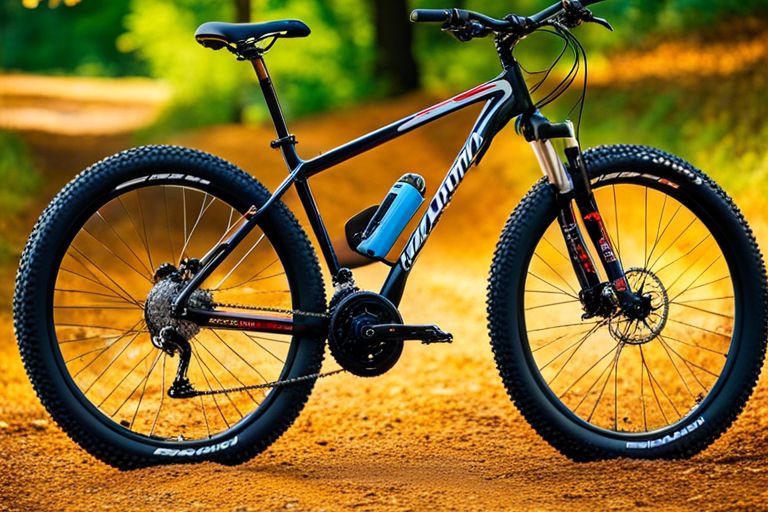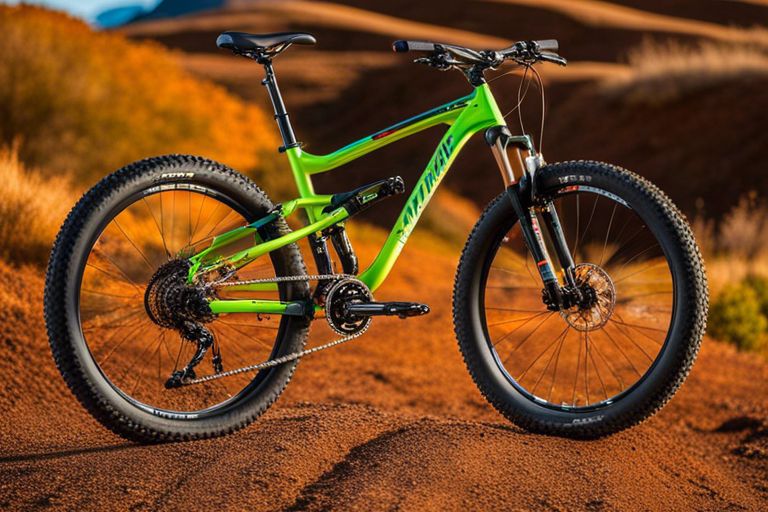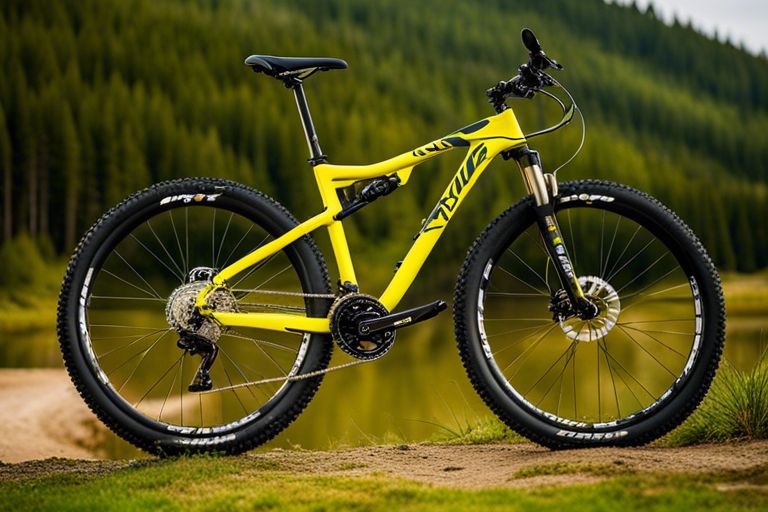Are you looking to improve your mountain biking performance and endurance? Do you want to avoid dehydration and heat exhaustion while riding on those challenging trails? Hydration is key! Proper hydration is especially important for mountain bikers because it can be physically demanding.
Not drinking enough water or electrolytes can lead to various health issues, such as fatigue, heat stroke, and poor physical performance. However, with increased water intake and the right sports drink, you can boost your energy and prevent setbacks.
This blog post delves into proper mountain biking hydration’s importance and benefits. So, let’s explore the world of hydration and take a sip from the fountain of performance!
Table of contents
Contents
- 1 Proper hydration can improve mountain biking performance and endurance.
- 2 Drinking water and electrolytes can help to avoid dehydration and heat exhaustion.
- 3 Sports drinks can provide an extra boost of energy to help with fatigue.
- 4 Increased water intake can help to prevent heat stroke.
- 5 Adequate hydration can improve physical performance.
- 6 Conclusion and final thoughts 💭
- 7 FAQ
- 7.1 Q: Why is hydration important for mountain bikers?
- 7.2 Q: How much water should I drink while mountain biking?
- 7.3 Q: Can I drink sports drinks instead of water while mountain biking?
- 7.4 Q: Will drinking more water make me pee more often during mountain biking?
- 7.5 Q: Do I need to drink water during shorter rides?
- 8 You may also like 📖
Proper hydration can improve mountain biking performance and endurance.
As a mountain biker, I know how important it is to maintain proper trail hydration. Not only does it keep you from feeling sluggish and tired, but it also significantly improves your performance and endurance on the bike.
When I first started mountain biking, I did not drink enough water because I thought it would weigh me down. Little did I know that dehydration can cause fatigue, cramps, and even heat exhaustion. It wasn’t until I started taking hydration seriously that I noticed a huge improvement in my ability to tackle longer, more challenging rides.
Hydration regulates the body’s core temperature, increases blood flow, and improves energy levels. It’s not just about drinking water, though – electrolytes, such as sodium and potassium, are also crucial in maintaining proper hydration. These can be found in sports drinks, gels, and certain foods like bananas and avocados.
I always carry a water bottle or hydration pack and take sips regularly throughout the ride to ensure I stay hydrated on the trails. I also fuel up with electrolyte-rich snacks like trail mix or energy bars.
Proper hydration is essential for anyone looking to improve their mountain biking performance and endurance. Don’t make the same mistake I did and underestimate the importance of staying hydrated on the trails. Trust me; you’ll feel the difference!
Drinking water and electrolytes can help to avoid dehydration and heat exhaustion.
Feeling exhausted and dehydrated during the hot summer is no fun. You can avoid these uncomfortable symptoms by drinking plenty of water and electrolytes.
Water is essential for keeping your body hydrated, while electrolytes such as sodium, potassium, calcium, and magnesium help regulate fluid balance and support muscle function.
Without enough of these vital nutrients, you might experience cramping, headaches, and fatigue, especially during strenuous activities such as exercising or spending too much time in the sun.
Drinking water and electrolytes can also help to lower your body temperature, which is crucial for preventing heat exhaustion.
When your body overheats, it struggles to regulate its internal temperature, causing dizziness, nausea, and confusion.
By staying properly hydrated and replenishing your electrolyte levels, you can keep your body cool and functioning properly, even on the hottest days of the summer.
So next time you feel parched or overheated, reach for a glass of water or a sports drink packed with electrolytes. Your body will thank you for it, and you’ll be able to enjoy all the fun and activities the summer offers without feeling drained or dehydrated.
Sports drinks can provide an extra boost of energy to help with fatigue.
Sports drinks have become increasingly popular over the years and for good reason. These drinks are designed to give athletes and other active individuals an extra energy boost when needed most.
During an intense workout or a strenuous competition, sports drinks can provide the necessary hydration and nutrients to help fight fatigue and keep you going.
One of the key benefits of sports drinks is their ability to replenish the body with electrolytes. These essential minerals are lost through sweat during physical activity, leading to dehydration, muscle cramps, and even heat exhaustion.
Sports drinks contain electrolytes like sodium, potassium, and magnesium, which are crucial for proper hydration and muscle function.
Another advantage of sports drinks is their ability to provide a quick source of carbohydrates. Carbs are the body’s main energy source, and during intense exercise, they get used up quickly.
Sports drinks contain simple sugars like glucose, fructose, and sucrose, which are easily absorbed by the muscles and used for energy.
Sports drinks can also help fatigue by providing a refreshing and flavorful alternative to plain water. Many athletes find it difficult to stay hydrated during long bouts of exercise, but the taste and texture of sports drinks can make it easier to drink enough fluids.
Sports drinks are a great way to stay hydrated, boost energy levels, and fight off fatigue during physical activity. Be sure to choose a high-quality, low-sugar option designed specifically for athletes.
And as always, consult with a healthcare professional before making any changes to your diet or exercise routine.
Increased water intake can help to prevent heat stroke.
Increased water intake can greatly benefit the prevention of heat stroke during the hot summer months. When the body becomes dehydrated, it struggles to regulate its temperature, leading to an overheated state.
By increasing water intake, the body’s temperature regulation system can function properly, ultimately reducing the risk of heat stroke.
While it’s essential to remain hydrated throughout the year, it’s essential during the summer months when higher temperatures and humidity levels can make a person more susceptible to heat stroke.
Drinking water every hour, and making it a priority to carry a water bottle, can significantly reduce the chances of dehydration.
Other fluids, like sports drinks, can also help to replenish lost electrolytes and prevent dehydration. However, the high sugar content in these drinks may not suit everyone.
Additionally, cold and refreshing food and drinks such as watermelon, cucumbers, and coconut water can relieve the heat and aid in hydration.
It’s noteworthy that increased water intake doesn’t only help to prevent heat strokes but also benefits the body in multiple ways. Adequate hydration is essential for proper organ function, maintaining healthy skin, and keeping the body’s digestive system functioning correctly.
Increasing water intake regularly is crucial to help prevent heat stroke, especially in the summer months. So remember, drink water often, carry a water bottle, and eat hydrating snacks, giving your body the hydration it needs to fight the risk of heat stroke.
Adequate hydration can improve physical performance.
Proper hydration is key to good health; staying hydrated has numerous benefits. Adequate hydration can improve physical performance by maintaining the proper balance of fluids in the body, allowing for better blood circulation and oxygen delivery to muscles, leading to improved endurance and reduced fatigue during exercise.
Hydration also helps regulate body temperature, preventing overheating, which can further improve athletic performance.
Drinking enough water can also aid in weight loss by reducing hunger and boosting metabolism. Staying hydrated can also improve digestion, help prevent constipation, and promote healthy skin. It can also lower the risk of developing kidney stones and prevent headaches and muscle cramps.
So how much water should you be drinking each day? The Institute of Medicine recommends that women aim for 9 cups of water daily and men aim for 13 cups. Keep in mind that these recommendations can vary based on factors such as age, weight, activity level, and climate.
To stay hydrated, carry a water bottle with you throughout the day and drink water before, during, and after exercise.
You can also include water-rich foods, such as fruits and vegetables, or drink beverages, such as herbal tea and low-sugar sports drinks. Staying hydrated is an important part of maintaining good health and can have numerous benefits for your mind and body.
Conclusion and final thoughts 💭
Proper hydration is a critical factor every mountain biker should consider before and during their ride. Staying hydrated can lead to better performance, endurance, and overall enjoyment of the sport.
Remember to drink water regularly and replenish electrolytes lost through sweat to avoid dehydration and heat exhaustion. Additionally, sports drinks can provide an extra energy boost to help fight fatigue and keep you pushing forward.
By prioritizing hydration, you’ll improve your performance on the trails and ensure a safe and enjoyable ride. So, don’t forget to pack enough water and electrolyte-rich fluids on your next mountain biking adventure!
FAQ
Q: Why is hydration important for mountain bikers?
A: Proper hydration is crucial during mountain biking because it helps to regulate body temperature, prevent cramping, and avoid fatigue.
Mountain biking is physically demanding, often in hot and humid environments. When dehydrated, you are more prone to fatigue and reduced performance. Staying hydrated helps ensure that your body can handle the physical demands of mountain biking.
Q: How much water should I drink while mountain biking?
A: The amount of water you should drink while mountain biking depends on several factors, such as your body weight, the length of your ride, and the conditions you are riding in.
As a general rule of thumb, you should drink at least 16 ounces of water per hour while riding.
You may need to drink more if riding in a hot and humid environment or engaging in intense physical activity. If you are unsure how much water you need to drink, consult your doctor or a qualified nutritionist.
Q: Can I drink sports drinks instead of water while mountain biking?
A: Sports drinks can be a good source of electrolytes and carbohydrates, which can help replenish your body’s energy and fluids during long rides. However, it is important to balance your intake of sports drinks with plain water.
Drinking too many sports drinks can lead to excess sugar and calories, which can cause gastrointestinal problems and make it harder to stay hydrated.
Q: Will drinking more water make me pee more often during mountain biking?
A: While drinking more water may increase your need to urinate, staying hydrated is essential for maintaining performance and preventing dehydration-related symptoms.
To minimize the need to stop and urinate frequently, start hydrating a few hours before your ride, and plan your routes accordingly. Many mountain biking trails have restrooms or other facilities where you can stop and take a break if necessary.
Q: Do I need to drink water during shorter rides?
A: Even if you are only riding for a short period, it is still essential to stay hydrated. Dehydration can occur quickly, especially when riding in a hot and humid environment. Always bring water on your rides and take sips regularly to avoid dehydration.
Sources:
“Water: How Much Should You Drink Every Day?” Mayo Clinic, Mayo Foundation for Medical Education and Research
www.mayoclinic.org/healthy-lifestyle/nutrition-and-healthy-eating/in-depth/water/art-20044256.
Casa, Douglas J, et al. “National Athletic Trainers’ Association Position Statement: Fluid Replacement for Athletes.” Journal of Athletic Training, National Athletic Trainers Association
www.ncbi.nlm.nih.gov/pmc/articles/PMC1323410/.
You may also like 📖
The 15 Best Schwinn Mountain Bikes for All Trails: Expert Reviews & Buying Guide
The Best Mountain Bikes For Beginners In 2023: 10 Outstanding Picks
10 Best Mountain Bikes For Wheelies In 2023 (Buyer’s Guide)
Schwinn Traxion Mens and Womens Mountain Bike review
Mongoose Impasse Adult Men Women Mountain Bike Review
HEAD UP2 L-Twoo A7 Alloy Dual Suspension Mountain Bike review






